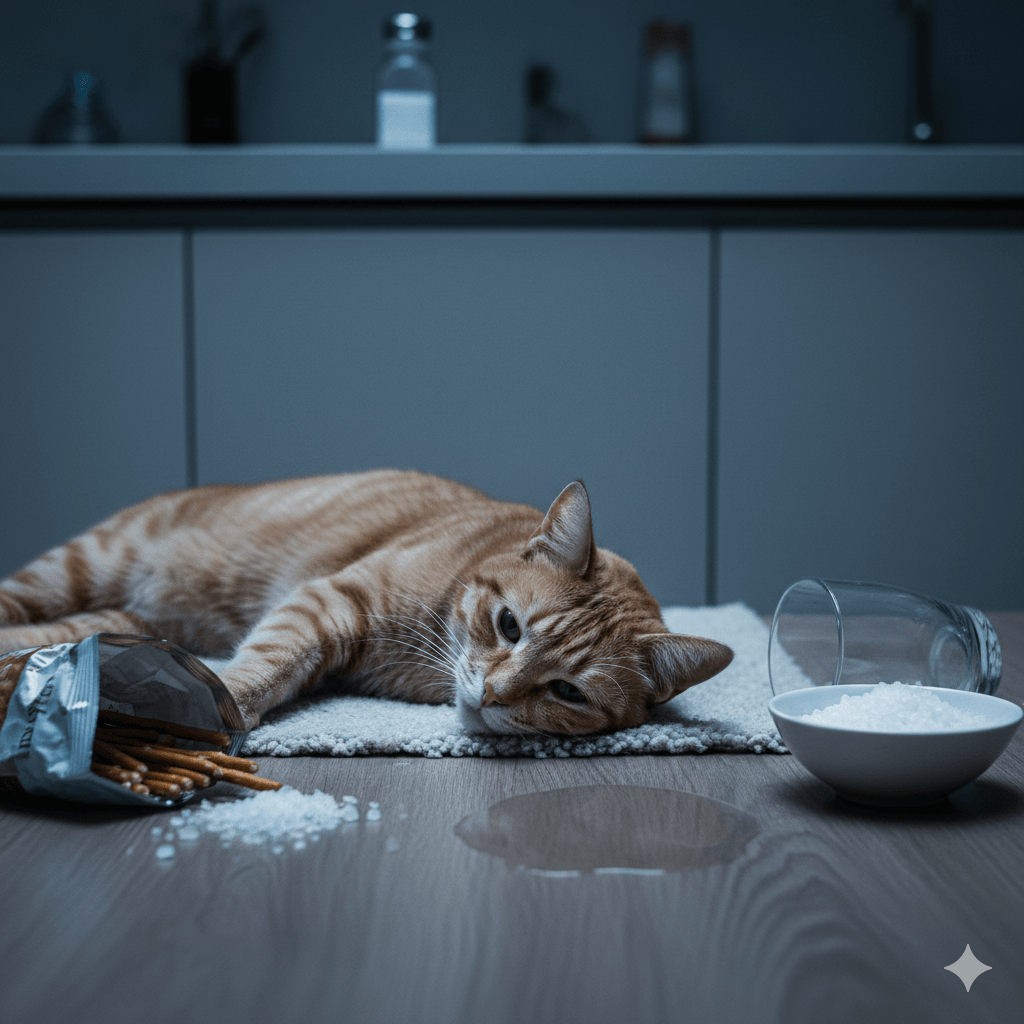Understanding Alkalinity in Cat Urine: What Every Pet Owner Should Know
Cat urine is more than just a nuisance—it’s a window into your feline friend’s health. One important factor to consider is the alkalinity of your cat’s urine, which can reveal valuable insights into their well-being. Alkalinity refers to the pH level of urine, and maintaining the right balance is crucial for preventing urinary tract issues and ensuring overall health. Whether you’re a seasoned cat owner or new to pet care, understanding alkalinity in cat urine can help you identify potential problems early and take proactive steps to keep your cat healthy. In this blog post, we’ll explore what alkalinity means, how it affects your cat, and what you can do to maintain optimal urinary health.
What Causes High Alkalinity in Cat Urine?
High alkalinity in cat urine can be caused by a variety of factors, many of which are influenced by diet, hydration, and underlying health conditions. Here’s a breakdown of the most common causes:
Dietary Factors
Certain foods, especially those high in plant-based ingredients, can increase the pH level of your cat’s urine.Dehydration
Insufficient water intake can lead to concentrated urine, which may become more alkaline over time.Urinary Tract Infections (UTIs)
Bacterial infections can alter the pH of urine, often making it more alkaline.Kidney Disease
Chronic kidney issues can affect how your cat’s body processes waste, leading to changes in urine pH.Medications
Some medications, such as diuretics or antibiotics, can influence the acidity or alkalinity of urine.
Understanding these causes is the first step toward addressing high alkalinity in your cat’s urine. By identifying the root cause, you can work with your veterinarian to develop an effective plan for managing your cat’s urinary health.
Signs of Abnormal Urine Alkalinity in Cats
Detecting abnormal urine alkalinity early can help prevent complications like urinary crystals or infections. Here are some signs that your cat’s urine may have an unhealthy pH level:
Frequent Urination
If your cat is urinating more often than usual, it could indicate irritation or infection caused by high alkalinity.Straining to Urinate
Difficulty or discomfort while urinating may signal the presence of urinary crystals or stones.Strong Odor
Unusually strong-smelling urine can be a sign of an imbalance in pH levels.Blood in Urine
The presence of blood indicates potential inflammation or infection, often linked to abnormal alkalinity.Changes in Litter Box Habits
Cats avoiding the litter box or urinating outside of it may be experiencing discomfort due to urinary issues.
If you notice any of these symptoms, it’s important to consult your veterinarian promptly. Early intervention can prevent further complications and ensure your cat stays comfortable.
Check this guide 👉Cat Urine High pH: Best 7 Expert Tips!
Check this guide 👉Understanding Crystals in Cat Urine: Best 7 Expert Tips!

Factors Affecting Urine Alkalinity | Signs of Abnormal Urine Alkalinity |
|---|---|
Diet rich in plant-based ingredients | Frequent urination |
Dehydration | Straining to urinate |
Urinary tract infections | Strong-smelling urine |
Kidney disease | Blood in urine |
Medications | Changes in litter box habits |
Tips for Maintaining Healthy Urine Alkalinity
Maintaining a balanced pH level in your cat’s urine is essential for preventing urinary tract issues. Here are some practical tips to help you achieve this:
Provide a Balanced Diet
Feed your cat high-quality, protein-rich food that supports urinary health and avoids excessive plant-based ingredients.Encourage Hydration
Ensure your cat drinks enough water by providing fresh water daily or using a cat water fountain to encourage drinking.Monitor Urine pH Levels
Use pH test strips (available at pet stores) to periodically check your cat’s urine pH and ensure it falls within a healthy range.Avoid Sudden Dietary Changes
Abrupt changes in diet can disrupt your cat’s urinary balance, so introduce new foods gradually.Schedule Regular Vet Check-Ups
Routine veterinary exams can help detect early signs of urinary issues and address them before they worsen.
By following these tips, you can help your cat maintain optimal urinary health and reduce the risk of complications related to alkalinity imbalances.
Common Urinary Health Issues Linked to Alkalinity
High alkalinity in cat urine can contribute to several urinary health problems. Understanding these issues can help you recognize symptoms early and seek appropriate treatment. Here are some common conditions linked to abnormal urine pH:
Urinary Crystals
Alkaline urine can promote the formation of struvite crystals, which can cause blockages or discomfort.Urinary Tract Infections (UTIs)
Bacteria thrive in alkaline environments, increasing the risk of UTIs.Bladder Stones
Persistent high alkalinity can lead to the development of bladder stones, which require medical intervention.Feline Lower Urinary Tract Disease (FLUTD)
This umbrella term covers various urinary issues, many of which are exacerbated by abnormal urine pH.Kidney Problems
Chronic alkalinity can strain the kidneys, potentially leading to long-term damage.
Addressing high alkalinity early can prevent these conditions from developing or worsening. Always consult your vet if you suspect urinary issues in your cat.
Common Myths About Cat Urine Alkalinity
There are several misconceptions about cat urine alkalinity that can lead to confusion among pet owners. Dispelling these myths is essential for making informed decisions about your cat’s urinary health. Here are some common myths and the truth behind them:
Myth: All cats naturally have acidic urine.
In reality, a cat’s urine pH can vary based on diet, hydration, and health conditions, and it’s not always acidic.Myth: High alkalinity is harmless if my cat seems healthy.
Even if your cat shows no symptoms, consistently high alkalinity can lead to serious urinary issues over time.Myth: Only dry food affects urine pH.
Both dry and wet foods can influence urine pH, depending on their ingredients and nutritional composition.Myth: Cats don’t need much water because they’re desert animals.
While cats have adapted to low water intake, insufficient hydration can still lead to alkaline urine and urinary problems.Myth: Urine pH doesn’t matter unless there’s a visible issue.
Monitoring urine pH is a proactive way to prevent urinary crystals, infections, and other complications before they arise.
Understanding the facts helps you take better care of your cat’s urinary health and avoid falling for common misconceptions.
Foods That Can Help Balance Urine pH
Diet plays a crucial role in maintaining balanced urine pH in cats. Choosing the right foods can help prevent alkalinity-related issues and promote overall urinary health. Here are some dietary options to consider:
High-Quality Protein Sources
Foods rich in animal-based proteins, like chicken or fish, help maintain a slightly acidic urine pH.Wet Food
Canned or wet food provides additional moisture, supporting hydration and reducing the risk of alkaline urine.Low-Carbohydrate Options
Diets low in carbohydrates and plant-based ingredients minimize the risk of raising urine pH.Specialized Urinary Health Formulas
Some commercial cat foods are specifically designed to support urinary health by balancing pH levels.Natural Additives (with Vet Approval)
Ingredients like cranberry extract may support urinary tract health when used as part of a balanced diet.
By incorporating these foods into your cat’s diet, you can help maintain a healthy urine pH and reduce the risk of urinary issues. Always consult your vet before making significant dietary changes.
Signs Your Cat’s Diet May Be Affecting Their Urine pH
If your cat’s urine pH is imbalanced, their diet could be a contributing factor. Recognizing signs of dietary influence can help you make necessary adjustments. Here are some indicators that your cat’s diet may be affecting their urine pH:
Frequent Urinary Accidents
Increased accidents outside the litter box can signal discomfort caused by an imbalanced pH.Strong Odor from Urine
A noticeable change in urine odor may indicate dietary factors altering its pH.Visible Crystals in Urine
The presence of tiny crystals in your cat’s urine often points to dietary imbalances.Changes in Water Consumption
Excessive thirst or refusal to drink water can impact hydration and urine pH levels.Weight Gain or Loss
Sudden changes in weight may reflect an inappropriate diet that indirectly affects urinary health.
These signs suggest that your cat’s diet may need adjustment to support healthier urine pH levels. Consult your veterinarian to evaluate your cat’s dietary needs and make informed changes.
Frequently Asked Questions About Alkalinity in Cat Urine
What is the ideal pH level for cat urine?
The ideal pH for cat urine typically ranges between 6.0 and 6.5, slightly acidic to neutral.
Can diet affect my cat’s urine pH?
Yes, certain foods, especially those high in carbohydrates or plant-based ingredients, can increase urine alkalinity.
How can I test my cat’s urine pH at home?
You can use pH test strips designed for pets to measure your cat’s urine pH at home.
Is high alkalinity in cat urine dangerous?
Yes, consistently high alkalinity can lead to urinary crystals, infections, or other health issues.
Can stress affect my cat’s urine pH?
Stress can indirectly affect urine pH by influencing hydration levels and dietary habits, so minimizing stress is important.
Supporting Your Cat’s Urinary Health Through Balanced Alkalinity
Understanding and managing alkalinity in cat urine is a vital part of ensuring your feline companion’s long-term health. By paying attention to their diet, hydration, and overall well-being, you can help maintain a healthy pH balance and prevent urinary tract issues. Remember, small changes—like encouraging more water intake or switching to a protein-rich diet—can make a big difference in your cat’s quality of life. If you ever have concerns about your cat’s urinary health, don’t hesitate to reach out to your veterinarian. With love, care, and proactive measures, you can support your cat in living a happy, healthy life free from urinary discomfort.
Poodle Water Dog: Best 7 Expert Tips! – Discover how Poodles excel in water activities, from swimming to training, and unlock their aquatic potential today.
Salt Poisoning in Cats: Best 7 Expert Tips! – Learn the dangers of salt toxicity, spot symptoms early, and discover how to keep your cat safe from this serious health risk.
Salt Poisoning in Dogs: Best 7 Expert Tips! – Learn the dangers of salt toxicity, recognize symptoms, and discover life-saving steps to protect your dog.
Can Too Much CBD Kill a Cat? Best 7 Expert Tips! – Discover the risks, safe dosages, and signs of CBD toxicity to keep your cat safe and healthy.





